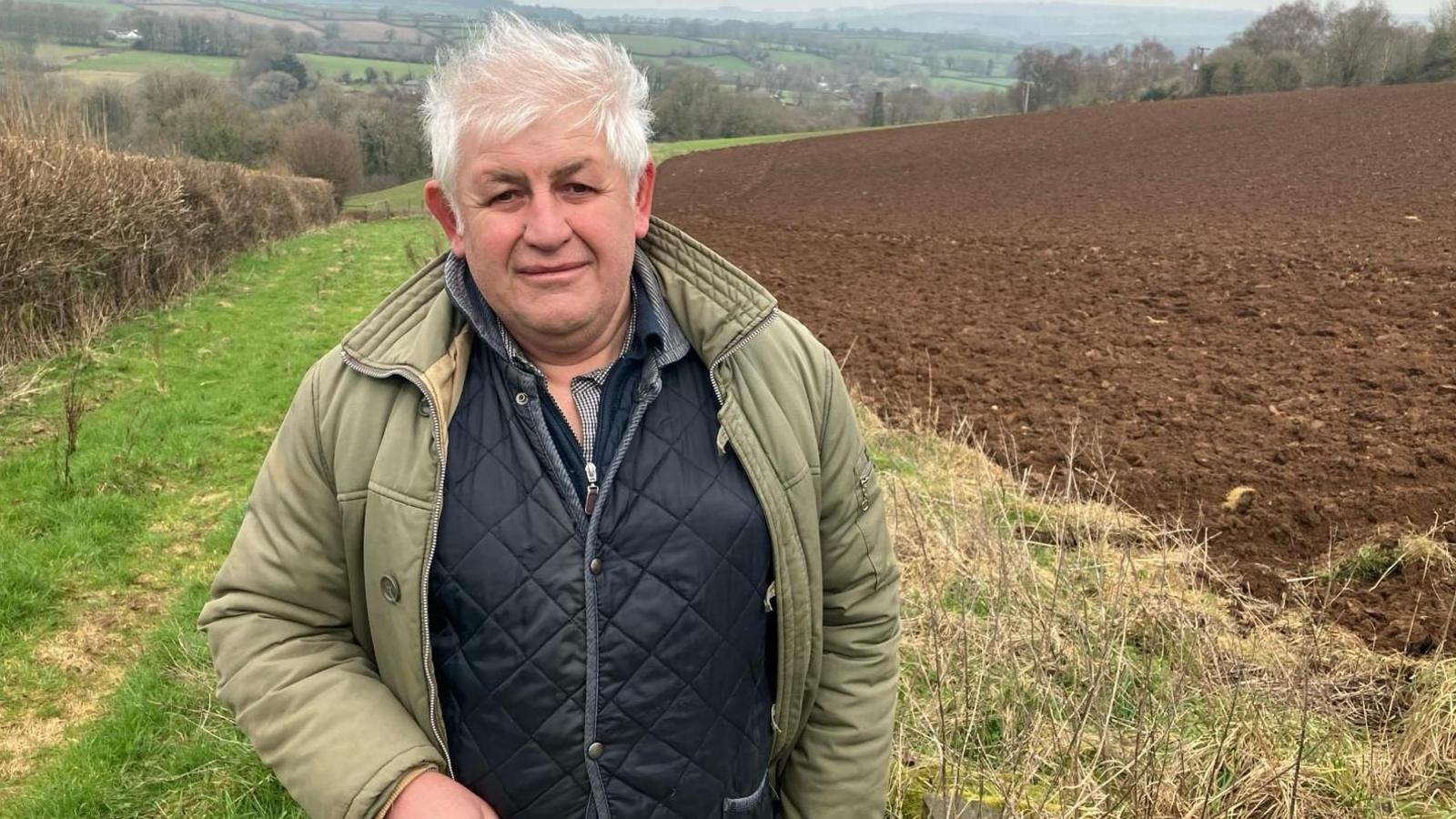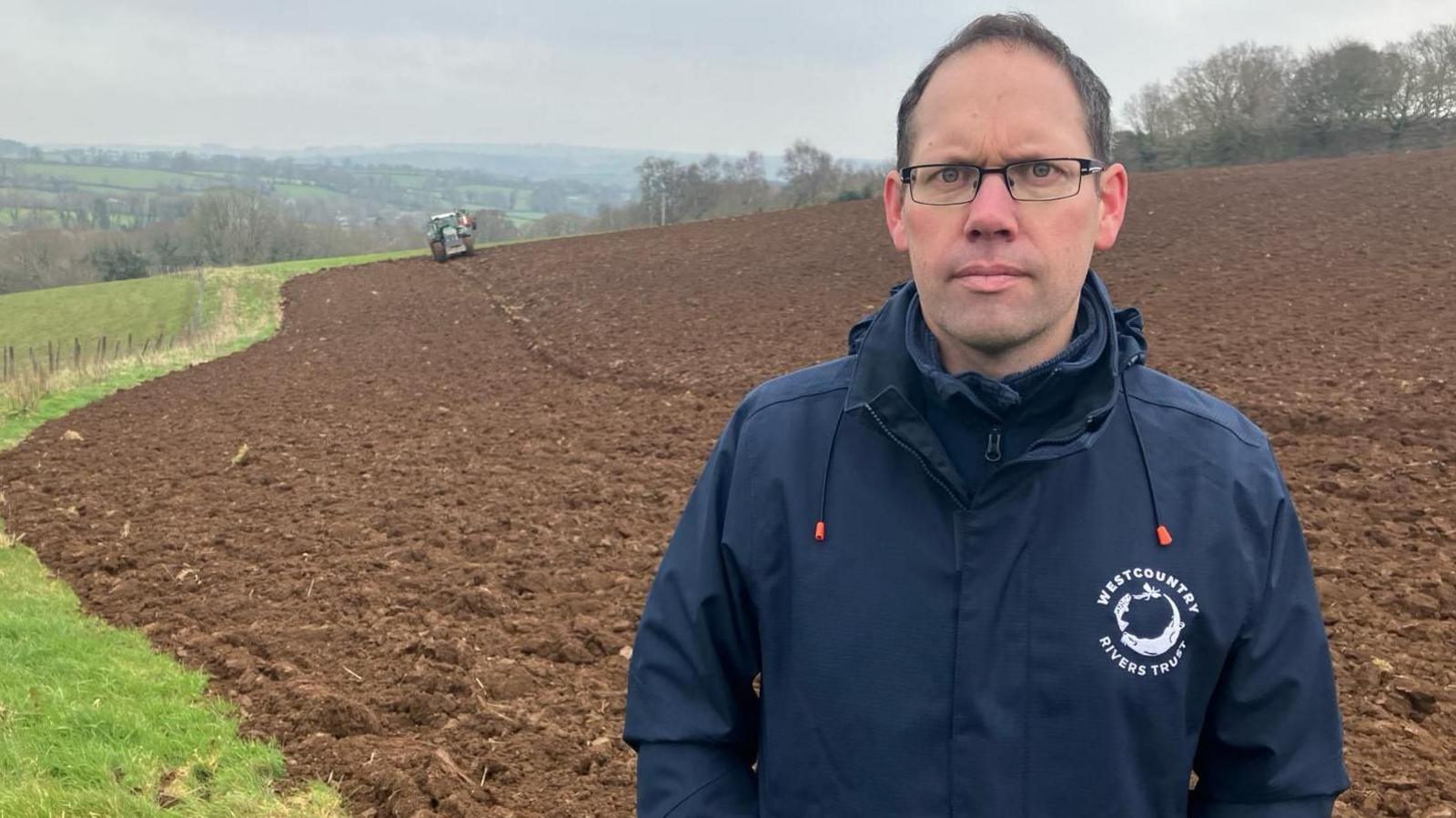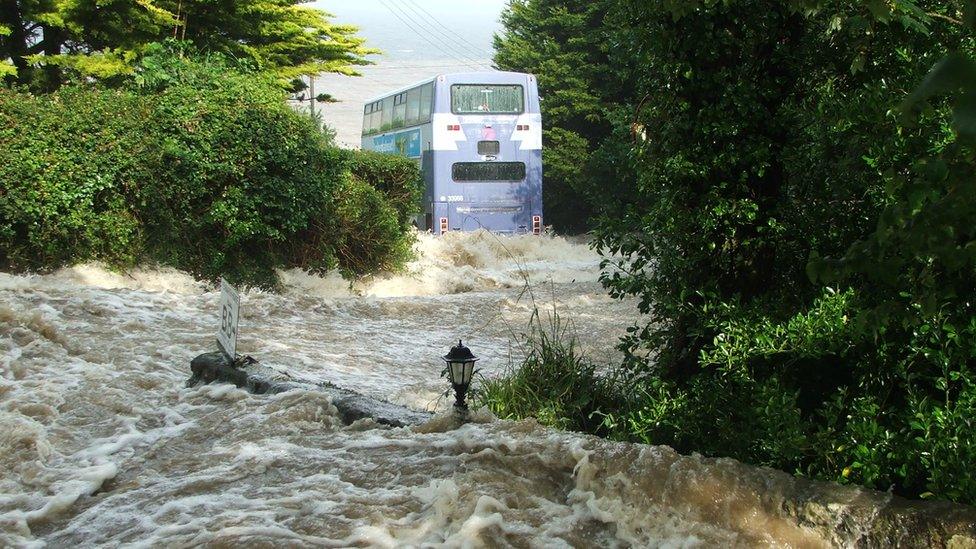Farmers aim to 'slow the flow' and reduce flooding

Bonny Lightfoot said they aimed to "slow the flow" of water
- Published
Farmers in east Cornwall are working together to improve water quality and reduce flooding.
Twenty-three farms around Stoke Climsland are being managed to prevent soil erosion, boost biodiversity and reduce run-off from fields.
The aim, farmer Bonny Lightfoot said, is "to slow the flow" of heavy rainfall that washes away soil and causes flooding.
The three-year project, which is funded by the Facilitation Fund, part of the Department for Environment, Food and Rural Affairs' Countryside Stewardship, involves about 3,000 hectares.

Martin Howlett recently planted deep-rooting spring beans to bind the soil together
Streams and waterways in the east Cornwall parish can become overwhelmed after heavy rain, leading to roads and properties becoming flooded.
Martin Howlett has a 113 hectare farm on which he has recently planted deep-rooting spring beans.
“Those roots will very quickly go down and hold the soil together so we don’t get the level of run-off,” he said.
“We are seeing more flooding and flash events of heavy rainfall.
"We clearly need to be able to slow that down to save our soils, but also to have the benefit to the wider community, [so] they don’t have those issues, that it runs off the fields into roads and their properties.”
Slowing the flow
Farmers Bonny and Tim Lightfoot are planning to build a series of natural dams – known as leaky dams – in the stream on their land, to help slow the flow of water after heavy rain.
They are also changing how they use the fields alongside the watercourse.
“Our aim as farmers is to slow the flow down," Mrs Lightfoot said.
Her husband added: "We’re going to put in a different type of ley grass to help absorb the water into the soil rather than let it run off the soil into the river."

James Coumbe said farmers were considering planting cover crops in winter when their fields were bare
James Coumbe, from the Westcountry Rivers Trust, which is helping manage the project, said farmers were considering planting cover crops in winter when their fields were bare.
"Having something planted and growing is a really good way of preventing the run- off of sediment and keeping the water cleaner,” he said.
Related topics
- Published25 February 2024

- Published11 November 2022
